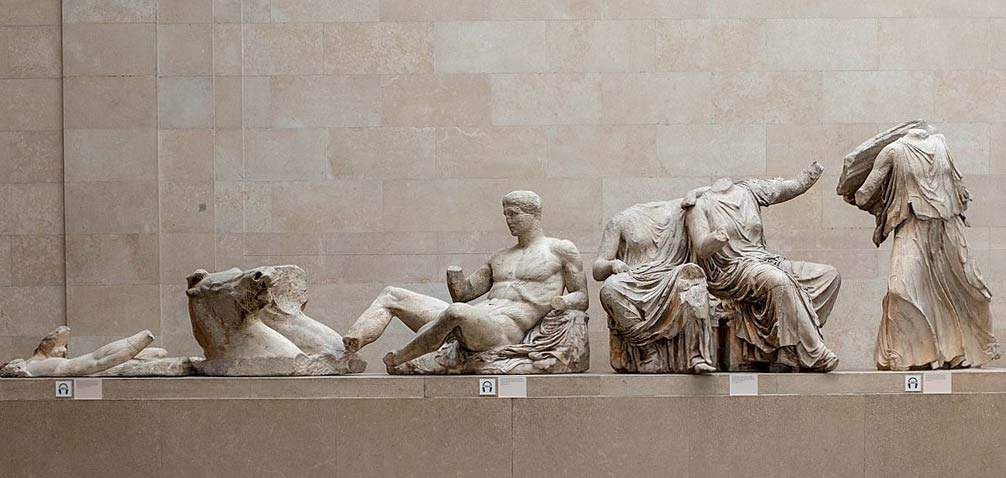British opening on Parthenon marbles. President: "I hope for a deal."
A possible opening of the British Museum to a deal with Greece over the Parthenon marbles? It would seem so, reading between the lines in the speech that the London museum’s president, George Osborne, gave at the annual dinner of the trustees, the British’s trustees. During his speech, Osborne called for a collaboration between the British and Greece to make sure that the sculptures can be admired “both in Athens and in London,” and that no one has to give up their prerogatives.
Osborne did not indicate operational modalities or a path to agreement, but it is significant that signs of openness are coming from the UK toward Greece, which has long wanted the marbles, brought to England in the early 19th century by Lord Elgin, to return to Athens.
“What about the Parthenon sculptures? I hope we can reach an agreement with Greece,” Osborne said. “An agreement that will allow these great sculptures to be seen in both Athens and London. An agreement that will allow other treasures from Greece, some of which have never left those shores, to be seen here at the British Museum. As administrators, we seek a partnership with our Greek friends that does not force anyone to give up their claims, does not demand changes to laws that are not ours to write, but finds a practical, pragmatic and rational way forward. We may not be able to do that. But we think it’s worth a try.”
“I know there will be people who will oppose it,” Osborne then concluded. “People who oppose change and development and collaboration. There were people who opposed the creation of this Museum in 1753. There are people who, frankly, don’t think we should exist at all - and always have. We welcome the controversy. The problems in the world today - the bitter divisions - are nothing new. The Parthenon sculptures around us depict soldiers on horseback. The reliefs in the Assyrian gallery next door show the sacking of a city, with terrible cruelty. Yet the objects themselves are the product of exquisite artistry and craftsmanship, the product of human learning and ingenuity. Our human history is one of debate and disagreement, of conflict and collaboration. How could a whole of our humanity, in all its beauty and barbarity, be anything but controversial? Human beings are controversial. And this is one of the very few places on earth that aspires to tell that human story. With your support, may it long have the courage to do so.”
Photo: Parthenon Marbles, the southern part of the east pediment at the British Museum. Photo by Brian Jeffery Beggerly
 |
| British opening on Parthenon marbles. President: "I hope for a deal." |
Warning: the translation into English of the original Italian article was created using automatic tools. We undertake to review all articles, but we do not guarantee the total absence of inaccuracies in the translation due to the program. You can find the original by clicking on the ITA button. If you find any mistake,please contact us.





























